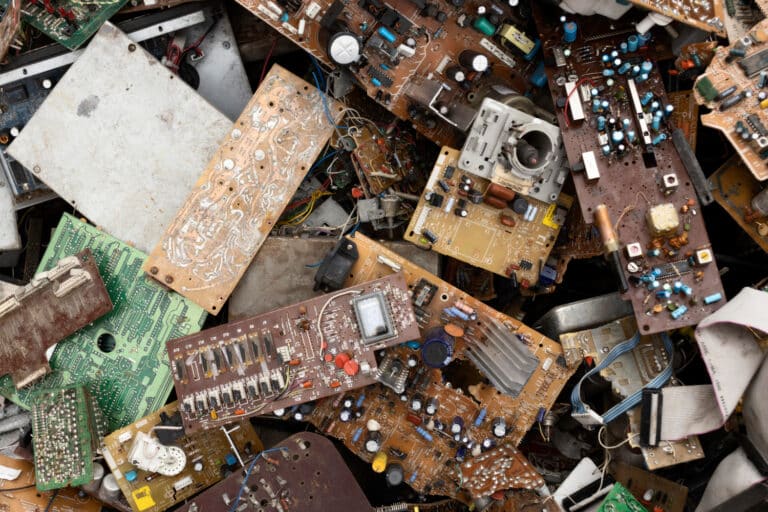Electronics recycling has become more critical than ever, especially in bustling cities like Augusta. As technology advances at a rapid pace, so does the pile of outdated gadgets and electronic waste. These discarded items pose a threat to the environment and can lead to harmful consequences if not managed properly. Augusta residents often find themselves turning to recycling as a way to mitigate this impact. Electronics recycling involves the proper disposal and repurposing of electronic devices, ensuring that they are not only removed from households and businesses adequately but also done so in an environmentally friendly manner.
However, the journey to effective electronics recycling isn’t without its obstacles. Many residents and local businesses in Augusta face hurdles that can make the process challenging. These issues range from the scarcity of accessible recycling centers to a lack of awareness about proper recycling practices. Identifying and solving these challenges is key to maintaining Augusta’s beauty and ensuring a healthier environment for future generations.
Identifying Common Electronics Recycling Challenges in Augusta
Augusta, like many cities, has its fair share of recycling challenges. One significant issue is the lack of easily accessible recycling centers. Residents often struggle to find nearby centers where they can drop off their old electronics, leading to improper disposal methods such as dumping devices in the trash. This scarcity not only hampers recycling efforts but also contributes to environmental pollution.
Public awareness is another hurdle faced by Augustans. Many folks simply aren’t familiar with the right ways to recycle electronics or the benefits of doing so. Without proper understanding, people may unknowingly dispose of electronics improperly, missing out on opportunities to recycle valuable components or reduce environmental harm.
Handling hazardous materials in electronics further complicates the recycling process. Many devices contain toxic substances like lead or mercury, which require special handling. Without the right knowledge or facilities, these hazardous materials can pose a risk to both human health and the environment. Addressing these challenges involves educating the public and providing clear guidance on safe disposal practices.
To combat these challenges, Augusta residents can look forward to several strategies. Increasing the number of recycling centers and holding local events can make recycling more accessible. Educational programs in schools and community centers can boost public awareness, making it easier for everyone to play their part in preserving Augusta’s environment.
Strategies to Overcome Recycling Center Accessibility Issues
Finding ways to make recycling centers more accessible in Augusta is a key part of encouraging e-waste recycling. Local authorities and organizations can explore transportation solutions and community events that bring recycling closer to residents.
One option is to arrange regular collection events in various neighborhoods. Setting up temporary drop-off points at convenient locations can help residents dispose of their electronic waste without having to venture far from home. Collaborating with local businesses and schools can provide additional venues for these events, further expanding accessibility.
Encouraging partnerships with local businesses can also increase the number of drop-off locations. Stores and offices that host recycling bins offer residents more options, making it easier to incorporate recycling into their daily routines. By working together, businesses and residents can address the gap in recycling facilities and make a notable impact.
Promoting Public Awareness About Electronics Recycling
Awareness is a vital component in improving electronics recycling practices. Increasing knowledge about what can be recycled and how it benefits the community requires ongoing educational efforts. Informative resources, such as brochures and online guides, can explain the importance of recycling electronic devices and detail the steps involved in doing so properly.
Offering workshops or seminars at community centers and schools can educate both young people and adults. By involving local educators in awareness campaigns, schools become hubs of information, empowering students to carry the message back to their families. This community-driven approach can amplify the impact of educational resources and accelerate change.
In addition, partnering with local media outlets to highlight successful recycling stories can inspire others to participate. Featuring eco-friendly initiatives or spotlighting individuals who have made significant contributions to recycling efforts can motivate others to take action.
Safe Handling of Hazardous Materials in Electronics
Handling hazardous materials found in electronics requires careful attention to detail. Substances like mercury, cadmium, and lead are commonly found in devices and need special handling to avoid environmental contamination or health risks. Residents can start by learning which materials are hazardous and identifying which components contain them.
For example, batteries and screens can contain toxic elements. The key is to separate these parts and deliver them to certified recyclers who adhere to strict safety protocols. Certified recyclers are trained to dispose of hazardous materials safely, protecting both the environment and the community.
Residents should look for recyclers who are certified and follow environmentally safe standards. Choosing reputable facilities ensures that electronic waste is processed responsibly and compliant with regulations.
Conclusion
Addressing the challenges of electronics recycling in Augusta involves a multifaceted approach. By increasing the accessibility of recycling centers, enhancing public awareness, and ensuring the safe handling of hazardous materials, the city can significantly improve its recycling efforts. Residents can take proactive steps to be part of this change, making conscious decisions about how they dispose of their electronic devices.
Engaging the community is essential. Whether through partnerships, education, or personal commitment, every effort counts toward preserving Augusta’s natural environment. Together, residents can contribute to a sustainable future, ensuring that the city remains a vibrant and healthy place to live for generations to come.
Taking proactive steps to improve electronics recycling can make a huge impact. If you’re ready to contribute to a greener Augusta, explore our range of services to help manage your e-waste responsibly. Visit Beyond Surplus to learn more about effective electronics recycling and how you can make a difference.


